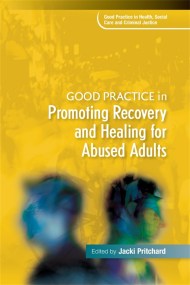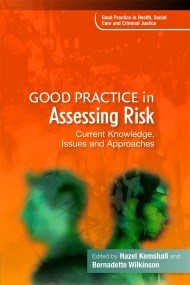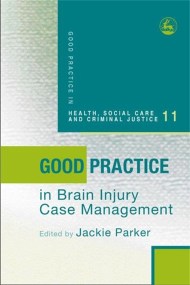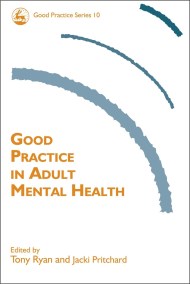The companion volume to Good Practice in Risk Assessment 1 looks at further issues in the field of risk assessment. Managers are under increasing pressure to predict risk accurately, and face serious consequences for failure. This new collection explores the arguments and means of assessment in a clear and accessible manner and with a practice-based emphasis. The contributors consider subjects as varied as child adoption, violence, mental health, alcohol and suicide in a wide range of social care settings, all linked by the difficulty of accurately assessing risk.
Newsletter Signup
By clicking ‘Sign Up,’ I acknowledge that I have read and agree to Hachette Book Group’s Privacy Policy and Terms of Use
Reviews
A comprehensive overview of practice issues... [The] chapters are well-written and informed with arguments well supported by pertinent case study material. The book will prove a useful tool to those working with risk in providing practical strategies for effective intervention and, in some chapters, accessible exercises for use in staff development and training. The contributors are to be commended for providing a balanced perspective and seeking to challenge the pervasive negative connotations typically applied to risk behaviours. [The editors] have succeeded in producing a well written text which deals with issues and dilemmas related to risk in a clear and forthright manner. Social workers, and their managers will benefit from the objective stance provided in an increasingly prioritized and significant area of influence on practice.
It embraces a wide range of practice settings - examining areas such as child adoption, violence, mental health, alcohol and suicide... It is targeted at both staff and managers who face dilemmas on a daily basis with risk decision making... The use of case studies and personal experiential accounts add real meat to the bones of some of the issues outlines and gives the book a genuine feel of being based and strongly informed by practice, alongside past and academic research material. Whilst I found myself instinctively drawn to areas of practice with which I am currently involved, I found that there was something in each chapter that I could relate to and use. Overall, this is an excellent publication for practitioners, managers and trainers in health, social work and probation services.
The book provides a useful collection of practice-based contributions which offer an overview of current attempts to implement strategies of risk…encourages the reader to adopt a more holistic approach to risk, identifying the rights and dignity of the client alongside the expectation to `protect the public'.
A great asset... For therapists in mental health or community care there are useful chapters which give additional background reading. Case studies help to explain the issues being discussed and encourage you to think further. A comprehensive bibliography follows the end of each chapter.
This new collection explores the arguments and means of assessment in a clear and accessible manner and with a practice-based emphasis.












